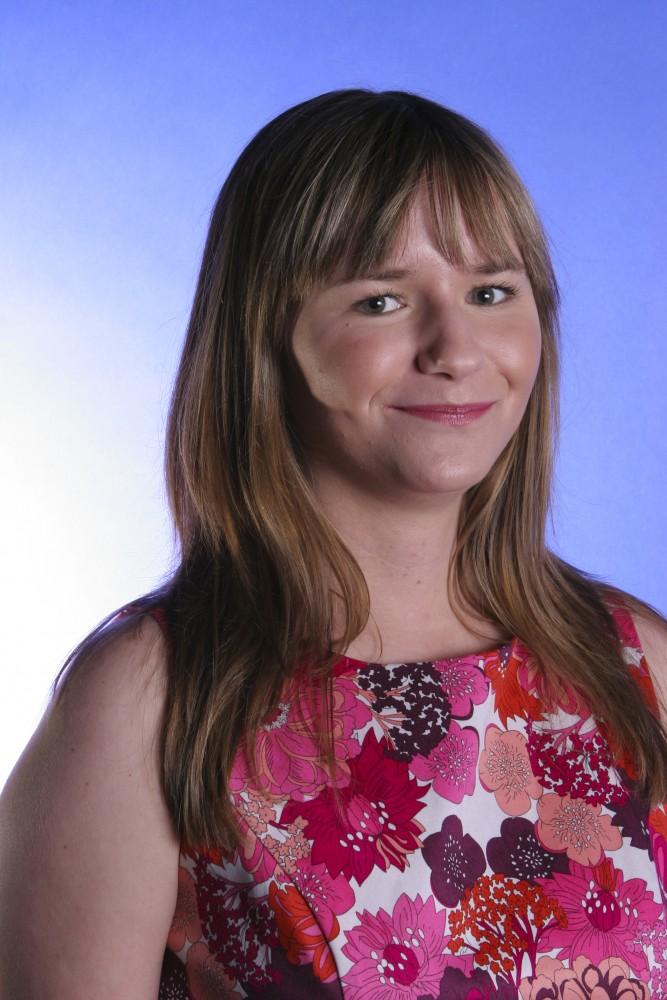Religious studies major and minor to be added

Apr 21, 2011
With finals just around the corner, many students may currently find themselves hoping for some divine intervention to get them through the semester. It is perhaps appropriate then that the newest major and minor up for final approval at Grand Valley State University is a religious studies program.
To explore the possibility of creating such a program, GVSU approved the formation of a Religious Studies Task Force several years ago, an interdisciplinary committee composed of faculty from the philosophy, nursing, business, political science, liberal studies, sociology, criminal justice and biomedical sciences departments.
Liberal studies professor Diane Maodush-Pitzer, who served on the task force and will likely teach some of the courses, said the new program was added as a result of high student interest. Although GVSU currently offers religiously-themed courses and students can select religion as their study theme, surveys conducted by the Religious Studies Task Force indicated students wanted more extensive options. In a winter 2008 poll of over 300 students, nearly 70 percent of the respondents wanted expanded opportunities to study religion, a quarter of the students said they would seriously consider a major in Religious Studies and half said they would consider a minor.
“Throughout our series of student surveys, it has been made abundantly clear that there is a great desire on the part of students to engage this topic critically,” Maodush-Pitzer said. “In national studies it has been found that this major has become increasingly in demand at public universities.”
She added that the new program will also “enhance GVSU’s commitment to diversity” and allow students to address religion in broader political, historical and philosophical contexts.
Of Michigan’s 15 public universities, 11 already offer a religious studies major or minor. In order to make GVSU’s particular program as cost-effective as possible, the major/minor will largely consist of existing courses that naturally fit into the Religious Studies curriculum, such as ANT 315: Comparative Religions, LIB 335: Scriptures as Literature and HST 211: History of Islamic Civilization. The program will also feature some new courses, including Contemporary Theories and Issues in Religious Studies, Introduction to Religious Studies and Christianity: Global Perspectives. Degrees will be offered as both a B.A. and B.S.
Religious Studies Task Force member and biomedical science professor Sheldon Kopperl anticipates that the majority of the Religious Studies courses, both existing and new, will be taught by current College of Liberal Arts & Sciences professors. According to the official Religious Studies final plan proposal, new faculty will not be hired for the first two years of the program.
Despite its religious theme, Kopperl explained the program is not necessarily for students who want to enter into seminary or work directly in a house of worship. Instead, he said the Religious Studies Task Force envisioned the program as a way for students to further explore their interest in religion and perhaps couple that interest with another program or pursue it as a different type of career.
“The major is only 30 credits, which is pretty small compared to most other programs, and the minor is just 18 credits,” he said. “So it would make a nice complement to a student’s other area of study or help them develop a particular focus or emphasis for a degree they are currently pursuing, like in International Relations where students are required to have a particular emphasis.”
Kopperl added that, especially in a post-9/11 world, religion plays a large and important role in cross-cultural understanding, which he feels is vital to a multitude of careers, including everything from political discussion to conducting business with foreign companies to practicing international law to working with social service agencies. Accordingly, the program will take a multicultural approach rather than focusing solely on one particular religion.
Maodush-Pitzer said she hopes the program will allow students to live as “compassionate world citizens” who understand and appreciate the diverse world around them.
“It is my hope that this program will enhance critical thinking, intercultural knowledge and competence, ethical reasoning and integrative learning,” she said. “It is my hope that this will equip students to ‘shape their lives, their professions and society’ by bringing a deep understanding of the issues of religion into public dialogue. This program is designed, through its interdisciplinary methodology to build the capacity to make connections between fields of knowledge, between differing cultures and traditions, and between theory and real-world practice.”
Organizers plan to have the major/minor program fully operational by the Fall 2012 semester, pending final administrative approval. In the interim period, students will be able to sign up for current courses that will eventually be a part of the Religious Studies degree. Kopperl believes the timing is appropriate, as the city of Grand Rapids will observe 2012 as an official “year of interfaith understanding” and promote religious tolerance at local universities and colleges, including GVSU.
“Since the (University Academic) Senate will not have time yet this semester to act on the proposal, it is our hope that the program will be implemented-assuming University approval-in the 2012-13 academic year, in keeping with the year 2012 as the anticipated West Michigan year of interfaith dialogue,” he said





















